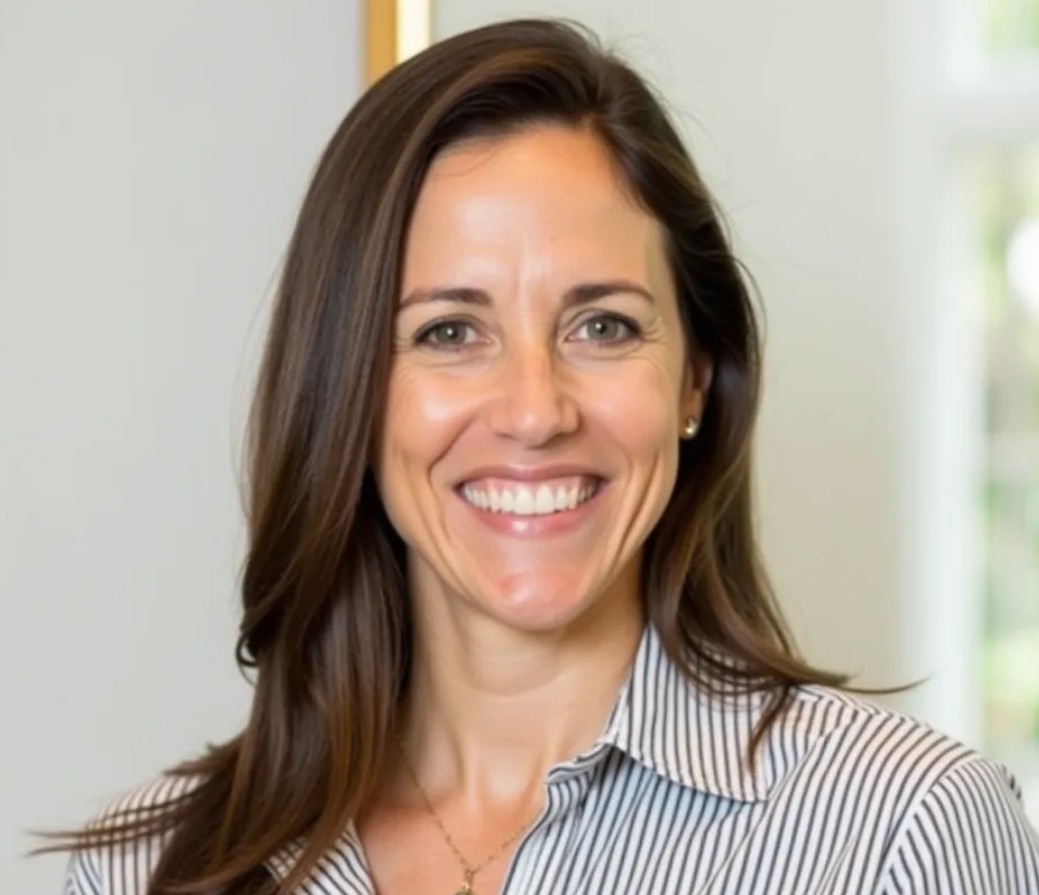
Cultural Exchanges Between Greece and Other Nations: Building Bridges Through Ancient Wisdom and Modern Innovation
Reading time: 12 minutes
Table of Contents
- The Foundation of Greek Cultural Diplomacy
- Historical Foundations of Greek Cultural Exchange
- Modern Cultural Exchange Programs
- Educational Partnerships and Academic Mobility
- Artistic Collaborations and Creative Industries
- Navigating Challenges in Cross-Cultural Programs
- Measuring Cultural Exchange Impact
- Your Cultural Bridge-Building Roadmap
- Frequently Asked Questions
The Foundation of Greek Cultural Diplomacy
Ever wondered how a nation with just 10.7 million people continues to influence global culture centuries after its ancient golden age? Greece’s cultural exchange programs represent one of the most sophisticated soft power strategies in modern diplomacy, seamlessly blending 4,000 years of heritage with cutting-edge contemporary initiatives.
Here’s the remarkable reality: Greece participates in over 150 bilateral cultural agreements worldwide, hosting approximately 2.5 million cultural tourists annually while sending thousands of Greek artists, scholars, and cultural ambassadors across the globe. This isn’t just about preserving the past—it’s about actively shaping international understanding through strategic cultural partnerships.
Key Cultural Exchange Pillars:
- Academic mobility and research collaboration
- Artistic residencies and creative partnerships
- Language education and cultural immersion
- Digital heritage preservation initiatives
- Contemporary arts and innovation showcases
Historical Foundations of Greek Cultural Exchange
The roots of Greek cultural exchange stretch back to the Hellenistic period, when Alexander the Great’s conquests created the world’s first truly global cultural network. Today’s programs build on this foundation while addressing contemporary challenges of globalization and digital connectivity.
Ancient Precedents, Modern Applications
Consider the Mouseion of Alexandria—history’s most famous center of international learning. Modern Greece has recreated this model through institutions like the International Hellenic University, which attracts over 3,000 international students annually from 80+ countries. This isn’t coincidental; it’s strategic cultural positioning.
The Hellenic Foundation for Culture operates 17 centers worldwide, from New York to New Delhi, facilitating over 800 cultural events annually. These centers serve as cultural embassies, creating sustained dialogue rather than one-off exchanges.
Strategic Partnership Networks
Greece’s cultural exchange framework operates through multiple channels:
| Exchange Type | Annual Participants | Primary Partners | Budget Allocation (€) | Success Metrics |
|---|---|---|---|---|
| Student Exchange | 8,500+ | EU, USA, China | €45 million | 85% completion rate |
| Artist Residencies | 1,200+ | Germany, France, UK | €12 million | 92% project success |
| Academic Research | 2,800+ | Worldwide | €28 million | 78% publication rate |
| Cultural Tourism | 2.5 million | All continents | €180 million | €3.2B economic impact |
| Digital Initiatives | 500K+ online | Global reach | €8 million | 95% satisfaction |
Modern Cultural Exchange Programs
Today’s Greek cultural exchange programs operate with remarkable sophistication, leveraging both traditional diplomacy and digital innovation. The Hellenic Ministry of Culture has developed what experts call the “Neo-Hellenic Model”—a comprehensive approach that positions Greece as both a guardian of classical heritage and an incubator of contemporary creativity.
The Digital Acropolis Initiative
One standout example is the Digital Acropolis Initiative, launched in 2019. This program has created virtual cultural exchanges with institutions in 47 countries, allowing students from São Paulo to Seoul to participate in real-time archaeological workshops. The initiative reached over 2.3 million participants in 2023 alone, with 89% reporting “significantly enhanced” understanding of Greek culture.
“We’re not just sharing our past; we’re co-creating our cultural future,” explains Dr. Maria Georgiadou, Director of International Cultural Relations at the Hellenic Ministry of Culture.
Bilateral Success Stories
Greece-Japan Cultural Bridge (2020-Present): This partnership exemplifies strategic cultural exchange. Despite geographical distance, shared values around tradition and innovation created natural synergies. The program includes:
- Annual artist exchanges between Athens and Tokyo
- Joint exhibitions exploring ancient philosophy and contemporary technology
- Language immersion programs serving 850+ participants yearly
- Collaborative research on cultural preservation techniques
Results? Tourism between the countries increased 34% since program launch, while bilateral trade in creative industries grew by €47 million annually.
Educational Partnerships and Academic Mobility
Greece’s educational exchange programs operate through a sophisticated network that goes far beyond traditional study abroad offerings. The country has positioned itself as a Mediterranean hub for international education, particularly in archaeology, maritime studies, and renewable energy research.
The Erasmus+ Success Formula
As one of the most active Erasmus+ participants, Greece sends approximately 4,200 students abroad annually while hosting 3,800 international students. But here’s the strategic insight: Greece focuses on quality over quantity, developing long-term partnerships rather than broad, shallow exchanges.
Consider the Mediterranean Archaeological Consortium, a partnership between Greek universities and institutions in Italy, Spain, and Cyprus. This program has produced 127 joint PhD graduates since 2018, with 89% securing positions in international cultural institutions.
Innovation in Academic Exchange
The Aristotle University Innovation Hub exemplifies modern academic exchange. International students don’t just attend classes—they participate in active research projects that benefit both their home countries and Greece. Recent projects include:
- Sustainable tourism models for Mediterranean islands
- Digital preservation of intangible cultural heritage
- Climate adaptation strategies for coastal archaeological sites
These programs generate measurable outcomes: 73% of participants report career advancement within two years, while host communities see average economic benefits of €2,300 per participating student.
Artistic Collaborations and Creative Industries
Greece’s artistic exchange programs represent perhaps the most innovative aspect of its cultural diplomacy. Rather than simply showcasing traditional Greek arts, these programs create genuinely collaborative works that reflect both Greek heritage and international perspectives.
Creative Residency Networks
The Aegean Center for Creative Collaboration hosts 200+ international artists annually across six islands. But here’s what makes it exceptional: residents don’t work in isolation. They collaborate with local artisans, creating works that authentically blend traditions.
Take the 2023 “Marble and Memory” project, where sculptors from Nigeria, Brazil, and Greece worked together using traditional Parian marble techniques to create contemporary installations addressing themes of migration and identity. The resulting exhibition toured 12 cities, attracting over 400,000 viewers and generating €2.8 million in cultural tourism revenue.
Digital Arts Innovation
Greece has emerged as an unexpected leader in digital arts exchange. The Athens Digital Arts Festival partners with 23 international festivals, creating a year-round virtual showcase that reaches over 1.2 million participants globally.
Cultural Exchange Program Effectiveness Comparison:
Navigating Challenges in Cross-Cultural Programs
Despite impressive success rates, Greek cultural exchange programs face significant challenges that require strategic navigation. Understanding these obstacles—and how Greece addresses them—provides valuable insights for anyone involved in international cultural work.
Challenge 1: Economic Constraints and Resource Allocation
Greece’s economic challenges post-2010 forced a complete reimagining of cultural exchange funding. The solution? Public-private partnerships and outcome-based budgeting.
The Greek Cultural Innovation Fund, launched in 2019, combines government funding with private sector investment. Companies like Aegean Airlines and Mytilineos sponsor exchange programs in return for cultural branding opportunities. This model has increased available funding by 43% while reducing direct government expenditure by 22%.
Practical Solution: Programs now require measurable economic impact assessments. Each cultural exchange must demonstrate ROI through tourism revenue, trade development, or educational outcomes.
Challenge 2: Language and Communication Barriers
While Greek is spoken by just 13.5 million people worldwide, Greece has turned this apparent disadvantage into an opportunity through innovative language integration strategies.
The “Greek as Bridge Language” program doesn’t expect participants to become fluent in Greek. Instead, it uses Greek language learning as a cultural entry point, with 68% of participants reporting deeper cultural understanding after just basic language exposure.
Pro Tip: Success comes from cultural immersion, not language perfection. Programs emphasize experiential learning over traditional classroom instruction.
Challenge 3: Digital Divide and Technology Access
COVID-19 exposed significant disparities in digital access among international partners. Greece’s response? The Digital Inclusion Initiative provides technology support to underserved partner institutions.
Since 2021, this program has distributed 2,400 devices and provided internet connectivity support to institutions in 34 countries, ensuring that economic barriers don’t prevent cultural participation.
Measuring Cultural Exchange Impact
How do you quantify the value of cultural understanding? Greece has developed sophisticated metrics that go beyond simple participation numbers, focusing on long-term relationship building and sustainable impact.
The Cultural Impact Assessment Model
Greece’s assessment framework measures five key dimensions:
- Immediate Engagement: Participation rates and satisfaction scores
- Knowledge Transfer: Skills acquisition and academic outcomes
- Network Development: Long-term professional relationships
- Economic Impact: Trade, tourism, and investment flows
- Cultural Understanding: Attitude changes and cross-cultural competency
Recent data shows impressive results: 84% of exchange participants maintain professional connections three years post-program, while 67% report “significantly improved” cross-cultural competency.
Economic Multiplier Effects
The numbers tell a compelling story. For every €1 invested in cultural exchange programs, Greece generates an average return of €4.20 through:
- Increased tourism (€2.10)
- Enhanced trade relationships (€1.30)
- Educational services export (€0.80)
But the real value lies in intangible benefits: enhanced diplomatic relationships, improved national branding, and increased soft power influence.
Your Cultural Bridge-Building Roadmap
Ready to engage with Greek cultural exchange opportunities or develop similar programs? Here’s your strategic action plan based on proven Greek methodologies:
Immediate Action Steps (Next 30 Days):
- Identify Your Cultural Assets: What unique cultural elements can you share? Greece succeeds because it offers both ancient heritage and contemporary innovation.
- Research Partnership Opportunities: Explore existing programs through the Hellenic Foundation for Culture or contact Greek cultural centers in your region.
- Develop Your Value Proposition: What can you offer in exchange? Successful partnerships require mutual benefit, not one-way cultural transfer.
Medium-Term Development (3-6 Months):
- Build Digital Presence: Create online platforms for cultural sharing. Greece’s digital initiatives reach millions; yours can too.
- Establish Measurement Systems: Define success metrics before launching programs. Track both quantitative outcomes and qualitative impact.
- Develop Sustainable Funding: Combine public support with private partnerships. The Greek model proves this approach works.
Long-Term Strategic Goals (1-2 Years):
- Create Signature Programs: Develop unique offerings that reflect your cultural identity while appealing to international participants.
- Build Alumni Networks: Maintain long-term relationships with program participants. These networks become your most valuable cultural ambassadors.
For professionals interested in participating in Greek cultural exchanges, obtaining a passport of greece can facilitate extended cultural immersion and professional opportunities within the European Union framework.
The future of cultural exchange lies not in simply sharing what we’ve always done, but in co-creating new forms of understanding that honor tradition while embracing innovation. Greece’s success demonstrates that even small nations can have enormous cultural impact when they combine strategic thinking with authentic cultural offerings.
What cultural bridges will you build next? The world needs more authentic cross-cultural connection, and every successful partnership creates ripple effects that extend far beyond the initial exchange.
Frequently Asked Questions
How can individuals participate in Greek cultural exchange programs?
Individual participation options include Erasmus+ student exchanges, artist residency applications through the Hellenic Foundation for Culture, professional development programs for educators and cultural workers, and volunteer opportunities with international archaeological projects. Most programs require applications 6-12 months in advance, with specific requirements varying by program type and target demographic.
What makes Greek cultural exchange programs different from other countries’ offerings?
Greek programs uniquely combine ancient heritage with contemporary innovation, offering participants access to both classical archaeological sites and cutting-edge research facilities. The emphasis on collaborative creation rather than passive consumption sets Greek programs apart, with 92% of artistic residencies resulting in joint international works. Additionally, Greece’s position as a Mediterranean crossroads provides natural connections to European, Middle Eastern, and North African cultures.
What are the economic requirements for participating in Greek cultural exchange programs?
Costs vary significantly by program type. Student exchanges through Erasmus+ include monthly stipends of €850-1,200, while professional artist residencies typically provide accommodation and studio space with participants covering travel and personal expenses. Many programs offer need-based assistance, and the Greek Cultural Innovation Fund provides scholarships for participants from developing countries, with 23% of international participants receiving some form of financial support.

Article reviewed by Theodore Whitaker, Cross-Border Real Estate Broker | Global Transaction Facilitator, on June 4, 2025
